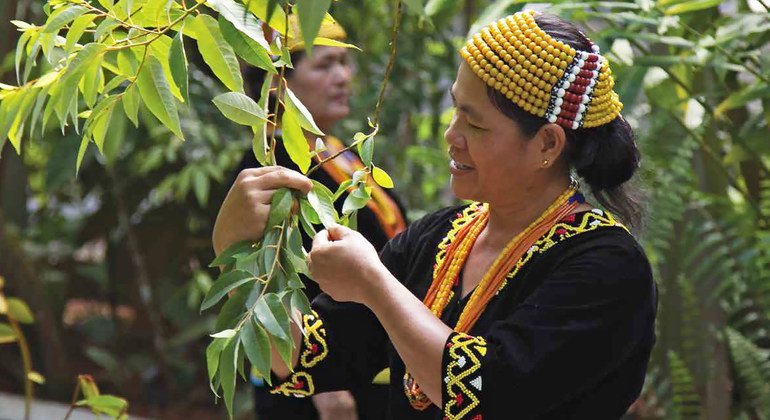The discrimination, violence and hostility that indigenous peoples have suffered historically and are currently endangering their spiritual, cultural and even physical survival, a landmark UN report concludes today.
This marginalization also violates the right to freedom of religion or belief of indigenous peoples.
“Severe, systematic and systemic discrimination and marginalization affect the ability of indigenous peoples to survive, not to mention thrive, exercising their most intimate religious or belief convictions,” the report submitted to the general Assembly by the UN Special Rapporteur* on freedom of religion or belief, Nazila Ghanea**, on behalf of her predecessor Ahmed Shaheed, who drafted it.
The report explores “indigenous spirituality” as a typically nature-based “way of life”, documents the experiences of affected rights holders, from forced displacement to environmental destruction, and proposes recommendations to protect and promote the freedom of religion or belief of indigenous peoples, in accordance with international law.
According to the report, States not only restrict their sacred ceremonies, their languages and the transmission of their traditional knowledge, but also indigenous peoples face challenges to exercise their freedom of religion or belief due to their assimilation, forced displacement, violence against defenders of the environment and human rights, and the destruction of sacred places.
“Given their inextricable relationship between the land and the sacred, many indigenous peoples believe that restricting access and use of ancestral territories is tantamount to prohibiting spiritual experiences“, the report states.
Vulnerable to environmental crises
Shaheed also noted that while indigenous peoples are disproportionately vulnerable to environmental crises, including climate change, many are in a unique position as traditional custodians of nature to use their spiritual and traditional knowledge in conserving it.
“While Article 18 of the International Covenant on Civil and Political Rights protects followers of any religion or belief system, an oft-repeated issue […] is whether its application has been adequate or appropriate for indigenous peoples”, indicates the rapporteur.
The report has been guided by the United Nations Declaration on the Rights of Indigenous Peoples and extensive consultations with rights holders around the world to develop “a framework for productive and sustained exchange.”
Also, offers practical recommendations to States and other key actors to better protect the right to freedom of religion or belief of the indigenous peoples.
*The special rapporteurs and independent experts are part of the Special Procedures of the Human Rights Council. Special Procedures, the largest body of independent experts in the UN human rights system, is the general name for the independent investigative and monitoring mechanisms established by the Council to address specific country situations or thematic issues around the world. Special Procedures experts work on a voluntary basis; they are not UN staff and do not receive a salary for their work. They are independent of any government and organization and act in their individual capacity.
**In July 2022, the Human Rights Council appointed Dr. Nazila Ghanea, from the Islamic Republic of Iran, as Special Rapporteur on freedom of religion or belief. Ghanea, who took office on August 1, 2022, is Professor of International Human Rights Law and Director of the Master’s Degree in International Human Rights Law at the University of Oxford. She has researched and published extensively on international human rights law, including freedom of religion or belief, and has consulted for numerous agencies.
Historical and current discrimination threatens the survival of indigenous peoples

